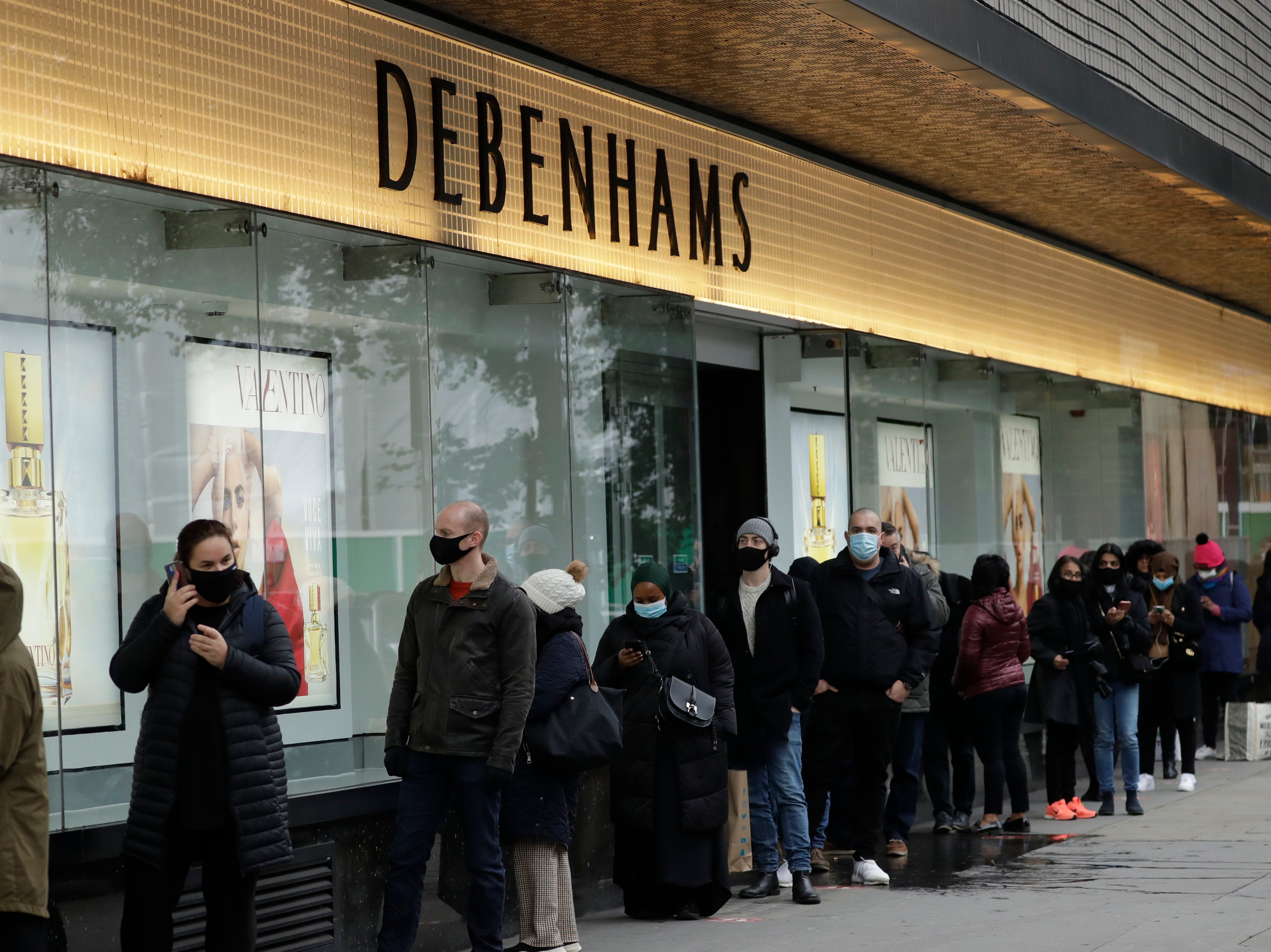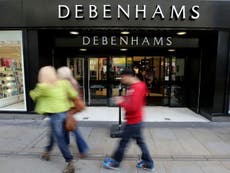Can Mike Ashley turn walking-dead Debenhams into a winner?
Critics say Ashley continues to give a very good impression of somebody who tries to win a game of Monopoly by buying up the useless brown and light blue squares, writes James Moore

There’s a lovely quote from retail analyst Nick Bubb about Sports Direct founder Mike Ashley’s fondness for buying up the high street’s walking dead. Ashley, said Bubb in his consistently readable Daily Retailer newsletter, “continues to give a very good impression of somebody who tries to win a game of Monopoly by buying up the useless brown and light blue squares on the board”.
This brings us neatly on to the subject of Debenhams. In its current state, the zombie department store chain looks like the most useless of those brown squares: the Old Kent Road.
For those who have somehow managed to avoid Monopoly, in which case congratulations because its a game that arguably causes more family rows than any other especially during the festive season, the Old Kent Road is the cheapest property to buy and to build on. Trouble is, the returns, in terms of the rent from your opponents should they land on the square, are dismal, even if you fill it up with houses, even if you add a hotel.
Until Ashley knocked on the liquidators’ doors of the Old Kent Road of the high street, Debs was done. The liquidators were looking to offload the better located shops, along with the remaining stock, before turning out the lights at the rest and axing thousands of jobs.
Then up popped Ashley, who had been Debs’ biggest shareholder and made an attempt to buy it out of administration, which was rebuffed to his great chagrin. A “national scandal” was how he described it before launching a series of furious volleys from the sidelines.
Talks have, however, now started again “in good faith”.
There would be advantages to Ashley if he could buy the whole thing rather than picking bits off the corpse. He could select the profitable stores from among Debenhams’ chain of 124 without having to worry about bidding against others to get them (the liquidators report interest). There would still be jobs lost from among Debenhams’ 12,000-strong workforce, because a substantial chunk of them would still close, but maybe not as many.
There would also be synergies to be had from putting the best bits of Debs together with what he has in House of Fraser (HoF) and running them from the same place.
Monopoly wonks will tell you that Bubb didn’t quite have it right with his quote. While the brown squares aren’t worth bothering about, the sky blue trio of Angel Islington, Euston Road and Pentonville definitely are. Strategically, they’re arguably the second best of the trio to make a set out of, beaten only by the orange squares in terms of cost/benefit. There’s even maths out there to prove it.
Ashley’s aim would be able to turn the Old Kent Road (Debs) and Whitechapel (HoF) into a shiny sky blue pair to add to Sports Direct and win the game. All together now, Monopoly!
The queues that emerged when “non-essential” stores reopened did rather prove that there is still some life in the high street. Successfully capitalising on it requires that you restrict your footprint to economic sites (big prestige ones with high footfall) and pull out of the unprofitable ones (often smaller town centres where, sadly, the tumbleweed will soon be blowing).
This may still fall through, even though Ashley has clearly wanted Debenhams to join his game board for a long time, not least because he’d like the chance to make back some of the £150m his unwisely spent on buying Debenhams shares.
The main concession-holder in its stores is Arcadia – brands from the wreckage of Sir Philip Green’s retail empire are prominently featured in Debenhams – and Arcadia is now in administration. That’s one problem. Business rates (a running sore for operators of bricks-and-mortar stores) have been cited as another.
Hindsight is a wonderful thing, but Bubb is right to say that Ashley would probably have been better leaving House of Fraser to its fate when he stepped in with a rescue bid there. Ditto some of the other ailing retailers he’s bought. Then he could have stuck to building up Sports Direct, which is, for all its problems, for all the scandal it has generated, an impressive business.
Whether he can make a winning strategy out of Debenhams added to the rest of his increasingly sprawling operation remains an open question.
But it is worth pointing out that at a time when just about everyone else has written bricks-and-mortar retail off, Ashley clearly still believes in it.
It might all end in tears. His management style is quixotic at best, corporate governance at Sports Direct was problematic long before he bought HoF and renamed the group Frasers. But having said that, it might just be that Ashley is the high street’s best hope.



Join our commenting forum
Join thought-provoking conversations, follow other Independent readers and see their replies
Comments